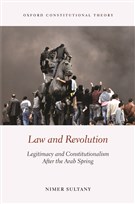At the moment of writing these lines, the BBC reports one hundred deaths thus far in Gaza in the recent Israeli onslaught. As we have seen these scenes before, the invocation of repetition comes naturally. “Once again” is a commonly used word when it comes to death and suffering under occupation in Palestine and specifically Gaza.1 It can be a rhetorically deployed knee-jerk reaction (as in: once again Israel is killing Palestinians; or: once again Israel has to defend itself against Palestinian attacks). It can also be deployed by a well-meaning third party who perceives the rhetorical deployment of “once again” as a propaganda war between two parties involved in a tragic conflict. Repetition is equated with futile death.
Repetition Outside Context
But “once again” is not a mere rhetorical gesture nor symptomatic of tragic despair. It connotes a recursive power dynamic and a structural relationship between an occupier and an occupied. It should be a reminder of context rather than an erasure of context. A recent example of this erasure of context is CNN’s Jake Tapper’s dismissal of Diana Buttu’s attempt to bring context into the discussion as mere “talking points”.2Indeed, context is confusing and destabilizes the simplifications. The anchor proceeded in his questions to the representative of the “Palestinian view” to deploy his own (though unacknowledged as such) talking points by invoking the alleged culture of hate and martyrdom amongst Palestinians. The erasure of context makes Palestinian violence irrational and hence the need for an alternative context in which cultural and religious explanations are paramount. It does not scrutinize the Israeli side in a similar fashion, even though recent events like the kidnapping and the killing of a Palestinian minor could have provoked such reflections (as it did in some Israeli circles like Haaretz).3 It could have been linked to the settlers’ systematic and violent assault on the Palestinians in the West Bank and state’s legal and institutional complicity, as detailed in many reports, but it did not.4 It could have reminded the viewers of the rejectionism of Benjamin Netanyahu’s governments and their foot dragging from the peace process as part of the context, but it did not. It did not because context is abstract and remote (more than 60 years). Violence is concrete and immediate (the Hamas rockets).
There is nothing rhetorical or tragic about the recent one hundred deaths in Gaza. In such rhetorical/tragic accounts the materiality of death and suffering is reduced to image production for political gains. More importantly, it distorts the political responsibility of the parties (including the absolution of third parties’ complicity in the continuation of oppression). Lacking context, the responsibility is either equally shared by two symmetrically opposed agents of violence or the stronger party bears no responsibility because it is merely responding to the irrational violence of the weak who bears the responsibility for death and suffering.
Repetition and the Laws of War
The current situation renews the questions regarding the utility of the laws of war, the legalization of political discourse, and inversion of moral discourse. The loss of proper context is aided by the basic dichotomy in the international law between justifications for launching a war and conduct during war. The former is more readily open to the political (after all people disagree on the propriety of war, e.g. whether it is in self-defense or not). The latter is more contained and can be confined with a prima facie professional language. But repetition in the historical evolution of the laws of war is subversive. Writing in 1874, H. Edwards, author of “The Germans in France” enumerated what he called “the three great principles of invaders’ law” (pp. 285 – 286):
1. For every offence punish someone; the guilty, if possible, but someone.
2. Better a hundred innocent should suffer than one guilty man escape.
3. When in doubt shoot the prisoner.5
Edwards is not being critical in this account, he seeks a description. Yet, he recognizes that these principles “proceed naturally from the fact that the invader has to deal with a population unanimously opposed to him…” The fact that there are general principles that produce a general law emanating from a basic condition of violence and opposition is another manifestation of the repetitive nature of the structure.
But repetition can also be a sign of failure, on the one hand, and of despair, on the other hand. From today’s perspective, Edwards’ ninetheenth century account does not show a lot of progress despite the evolution of the laws of war post-WWI and WWII. The laws of war are supposed to be an answer to the Athenian invaders’ retort to the weak Melians in the Peloponnesian war around 400 BC (a la Thucydides): “rights are in question between equals in power, while the strong do what they can and the weak suffer what they must.” Accordingly, repetition is merely the sign for the oppressed to surrender to fate. Either you accept your suffering or you unleash more suffering. It is your choice.
Although the occupied did not choose to be invaded and occupied — and cannot control how they will live under the occupation regime — they are asked to choose between slow death and immediate death, between the “normality” of oppression and the “exceptionality” of spectacular suffering, between proportional suffering and disproportionate suffering. Colonial law has always been concerned with proportional violence and the prevention of unnecessary suffering (as in India and Egypt under British colonial law). The Israeli Supreme Court is very fond of the proportionality doctrine. But that is the order of things in normal times. In exceptional times, in moments of violent encounter, moments of resistance, the recent “wars” are unleashing disproportionate suffering.
Will the Real Civilian Please Stand Up?
These impossible choices are underscored by a legalization of modern discourse. It is quite bizarre how legal nomenclature is dominating our discourse, especially during violent encounters in “conflict” zones. Newspapers like Haaretz are reporting the death of “noncombatants” in Gaza.6 The distinction between civilians and combatants in the laws of war, alongside the principle of proportionality, is supposed to provide minimal protections to the civilians who are caught up in a “conflict” zone. Israeli military onslaughts on Lebanon in 2006 and on Gaza 2009 deliberately sought to erode the distinction by attacking the “civilian infrastructure” supporting the “combatants” and expanding the latter’s definition (to include for example the police force). The US is doing the same in its drone war in Yemen, for example, by making all young men “military age” men and hence potential targets. The US did the same in the Vietnam War by inflicting massive suffering on civilians to subdue those modern Melians who reject conditions of enslavement and hence risk destruction.
Now, it seems that the erosion is complete in some parts of the public discourse. If the reference point is the combatants rather than the civilians, then civilians are defined as a negation. They are an afterthought. Rather than being the norm, they become the exception. The expectation and fear that Edwards expressed is still lingering beneath the categories that define and represent the reality of the oppressed: they are against the invader and hence are suspected of being combatants until proven otherwise. The Israeli reaction to every report of civilian casualties is representative of this view by indicating that the fatal strike targeted a combatant. The international parties call for restraint and return to calm: i.e., to proportional civilian suffering, unattainable peace, and absence of freedom.
Repetition and Retaliation
But the expansion is not merely in the question of innocent suffering (point 2 in Edwards’ list above), but also in the expansion of punishment and retaliation (point 1 in Edwards’ list). When Hamas won in the elections in 2006 the Israeli government withheld Palestinian tax money as a punishment (and released it after Abu Mazen fired the Hamas government, leading to the split with Gaza, as a reward).7 When the UNGeneral Assembly voted to make Palestine a non-member observer state the Israeli government declared 3000 new housing units (and processing additional 1000 permits) in East Jerusalem and the West Bank.8 More recently, when the Palestinians declared on June 2014 a unity agreement between Fatah and Hamas, Israel responded by initiating housing units in the settlements.9 This expansion of the idea of punishment obscures the prolonged nature of the occupation (a temporality not foreseen by the laws of war), and the settler colonial nature of the occupation by concealing the decades-long colonization project, and state investment in it, as if it were a reaction rather than an action, and a punishment rather than the norm.
Repetition and Justice
The repeated failure of the laws of war to protect the weak seems to make Israel a Nietzschean state. But that is only partially true. Nietzsche, like Thrasymachus (in Plato’s Republic) and Callicles (in Plato’s Gorgias) before him, saw justice/law as the will of the stronger. In the Genealogy of Morality he critiques the weak for blackmailing the stronger by moral chatter about equality, justice, tolerance, etc. The weak cannot defeat the powerful so they try to undermine the powerful’s ability to express their will to power and dominate the weak. Interestingly, however, there is a reversal of the Nietzschean prism, in the context of the Israeli occupation of Palestinian territories. Here we witness an occupier that wants to have it both: unleashing the destruction that comes with relatively unlimited power, combined with the mentality or discourse of the weak/slave morality. This morality seeks to shame the Palestinians for using violence, for resisting, for rejecting a complete surrender. It does not matter from this perspective if some Palestinians exhibited signs of willingness to surrender (as in the Palestinian Authority and their security cooperation with Israel). So long as there are groups who are unwilling to surrender, or occasionally resist, that provides a sufficient justification to invoke the moral arm hand-in-hand with military might.
The Unholy Trinity: War, Peace, Morality
In short, war, peace and morality are united at the moment against the Palestinians’ quest for freedom. The war machine crushes Palestinian daily life as well as their actions of resistance. The peace process is conditioned on their abdication of their right to resist an unjust foreign occupier and is conditioned on their subordination of demands on behalf of justice for the sake of peace. But they are trapped. Because the relative justice they are willing to accept is increasingly relative to the extent it becomes indistinguishable from unconditional surrender. In the gradual nature of a prolonged peace process the real issues are continuously deferred at the time the facts on the ground are being created. Any Palestinian move, diplomatic or otherwise, effective or meaningless, has to be confined to the bilateral logic of the process. Otherwise, it is deemed harmful to the peace efforts and considered a unilateral move that may justify Israeli unilateral moves or punishments. And of course, “violations” of the process and agreements justify mobilizing the war machine. War becomes the exception to the general condition of peace (which is reduced to a process with no definite endpoint) and seeks to restore it (as a process). Resistance is a violation of the process, which is predicated on its abdication, and war on resistance is a restoration of the condition of the (peace) process.
In other words, War is peace. Peace is surrender. Surrender is the right thing to do (à la the morality of the powerful). The right thing to do is to wage war on those who remind us of the conditions of absence of freedom.
So long as this is the dominant political discourse and practice, the repeated deaths in Gaza will be meaningless. Only eventual freedom will give meaning to the deaths of Gazans. Only proper contextualization will bring freedom back to the discussion.
[This was origingally published in Critical Legal Thinking.]






